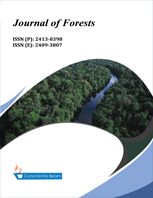Local ecological culture and the quest for a meaningful life
DOI:
https://doi.org/10.18488/jof.v11i2.3995Abstract
This study investigates the influence of Local Ecological Culture (LEC) on the pursuit of a meaningful life among communities residing adjacent to Mabira Forest in Uganda. Employing a mixed-method approach, the research explores the interplay between these communities and their environment, focusing on whether forest conservation practices are driven by immediate utilitarian benefits (shallow happiness) or by deeper ecological values (deep happiness). The study introduces key concepts such as "deep happiness" and Ubuntu to analyze how these communities conceptualize a meaningful life in relation to their ecological context. A principal components analysis (PCA) of the field data reveals three core dimensions of LEC: functional relationships with nature, environmental stewardship, and the notion of an embedded life. The findings indicate that both men and women, across various age groups, uphold strong commitments to ecological sustainability and community well-being, although distinct patterns of engagement emerge according to gender and age. This research highlights the pivotal role of local cultural practices in supporting environmental conservation and emphasizes the potential for community-based approaches to sustainability. By integrating LEC with broader conservation frameworks and sustainable livelihood strategies, the study contributes to a deeper understanding of how cultural values can inform environmental management in forest-dependent communities. The results offer critical insights for developing conservation policies that incorporate local ecological knowledge, promoting both environmental resilience and socio-economic sustainability.

